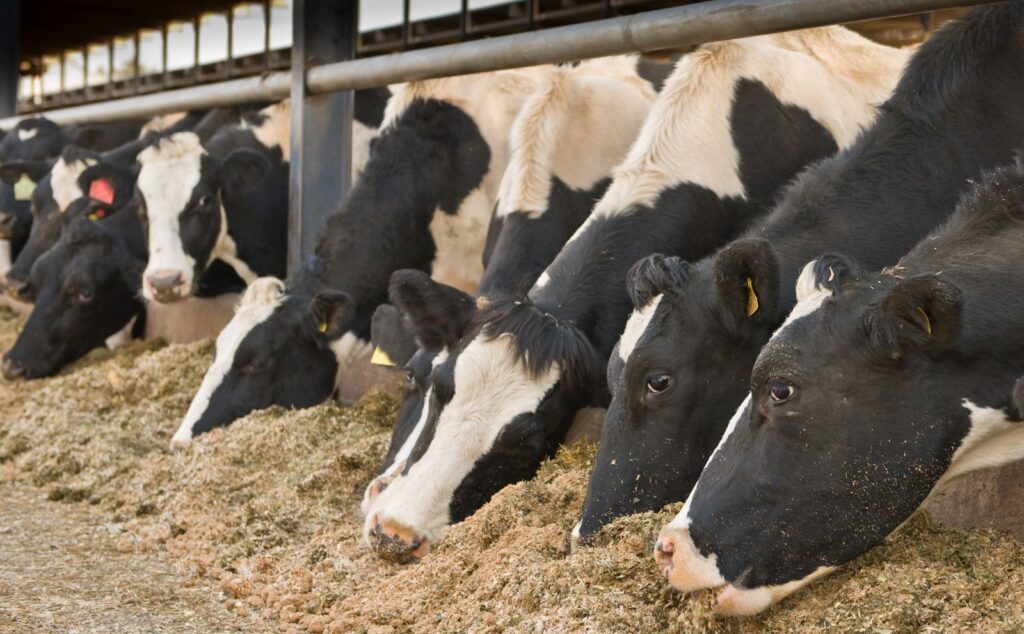New campaign launched to help farmers boost milk from forage
27th April 2023
Wynnstay’s new Forage4Profit campaign is aimed at helping dairy farmers maximise milk from forage and cut feed costs by improving the quality of homegrown forage, which can also help reduce farms’ environmental footprint.
According to Kingshay’s cost report from December 2022, UK farmers produce just 2,900 litres from forage on average. Meanwhile, there is huge scope for improving this figure and reducing feed costs, with some farms achieving as much as 5,300 litres of milk from forage, Wynnstay’s head of dairy David Howard said.
“Every 1,000 litres of milk from forage equates to approximately 460kg of concentrate feed, and so by increasing homegrown forage quality, you can make some significant savings on total feed costs,” he pointed out.
Mr Howard said the ideal digestibility value for forage is over 70, however, of the 1,228 forage samples analysed by Wynnstay, more than two-thirds had less than 70 digestibility value, with 12% less than 60.
He added forage quality is becoming increasingly important in the dairy industry, with many milk processors now offering producers incentives to reduce soya and improve their total feed efficiency, which is driven by the quality of forage.
“We are launching Forage4Profit, which is a four-point programme to help farmers improve each stage of their forage production from field to feed out. It covers everything from soil health through to seed selection, crop preservation and ration formulation,” Mr Howard revealed.
- Soil health
Having balanced soils is vital to making good-quality forage, as poor soil health will limit crop growth and quality, Mr Howard pointed out, adding that around 80% of soil samples carried out by Wynnstay are the incorrect pH.
He urged farmers to carry out regular soil sampling and correct any imbalances. “It is also important to identify areas of compaction and aerate soils to combat this, as well as creating bespoke fertiliser plans tailored to individual nutrient requirements,” he stressed.
- Seed selection
Seed selection will vary with individual farms depending on soil type, rainfall, quality targets, and how much forage farmers are aiming to produce.
“We must remember when we plant a seed in the ground on a dairy farm, the end product is not necessarily a crop – it’s a litre of milk. Milk is the saleable commodity and so seed selection must be linked to what the farmer is trying to produce,” Mr Howard said.
He recommended reseeding fields regularly, particularly under-performing leys, and consulting a grass seed specialist to select the best variety for the farm. He said multi-species leys and crops are great for increasing forage quality because of high-protein crops such as red clover and lucerne,
- Crop preservation
Getting this aspect right is often challenging because of the UK’s variable weather conditions. According to Mr Howard, grass starts losing energy (sugars) immediately after it is cut until the crop is clamped. Therefore, grass should be cut, tedded, wilted, and picked up in quick succession to minimise the loss of valuable nutrients.
“As a starting point, work out the crop’s nutrient requirements and apply slurry and nitrogen fertiliser accordingly,” he said. “It is also important to ensile the crop quickly to reduce dry matter losses and use an effective inoculant to rapidly drop the pH and reduces losses.”
- Balanced ration
Last but not least, feeding balanced rations is key when it comes to maximising milk yield from forage. “The complete diet is only as good as the forage foundation; the best results are achieved with high-quality forage and balanced concentrates,” Mr Howard noted.
He suggested working with a nutritionist to establish a good balance between forage and concentrate feed and ensure optimal protein utilisation and efficiency. “Using rumen additives such as Diamond V can help increase feed conversion efficiency,” he added.
To learn more about Forage4Profit, visit: https://www.wynnstay.co.uk/forage-for-profit

